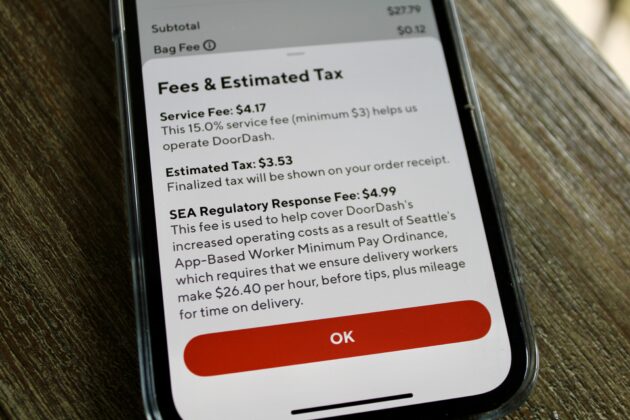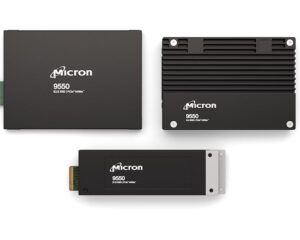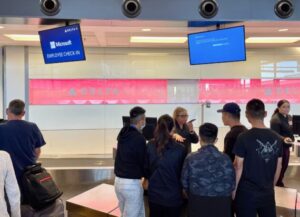
DoorDash has publicly committed to removing a $4.99 fee on customer orders if Seattle passes a revised minimum wage law for delivery drivers for the first time.
The company introduced the “regulatory response fee” in January after the city’s existing minimum wage law took effect, claiming it helped “cover the cost of these new regulations.”
The new fee led to reduced demand for DoorDash and Uber Eats, which also added a $5 charge per order. Both companies also modified tipping mechanisms.
This led to complaints from drivers and restaurant owners about the decline in orders on these platforms.
Following extensive lobbying by DoorDash and Uber, Seattle City Council President Sara Nelson proposed new regulations in April to lower the minimum wage for drivers from $26.40 to $19.97 per hour.
The council was scheduled to vote on the legislation, CB 120775, last week but postponed the vote to consider amendments.
DoorDash stated in a blog post Wednesday that it “stands ready to remove the current Regulatory Response Fee in Seattle once the reform bill is enacted and operational costs reduced.”
“To be clear, DoorDash is fully supportive of the compromise bill that would guarantee Dasher earnings of at least Seattle’s minimum wage of $19.97 per active hour, and will remove our $4.99 Regulatory Response Fee if this compromise is enacted,” said Anna Powell, DoorDash government relations head for the Northwest. “Despite making this clear to city officials, we have been met with inaction and delays.”
A complaint filed to the Federal Trade Commission last month by a Seattle resident claims that the fees are deceptive and misleading, alleging that the fee “bears no reasonable or logical relationship to the companies’ costs.”
The FTC declined to comment on the complaint.
DoorDash and Uber Eats are the leading food delivery companies in the U.S. CEOs from both companies have addressed Seattle’s minimum wage debate on recent earnings calls.
“These regulations clearly are having the opposite impact of what they intend to do,” DoorDash CEO Tony Xu stated earlier this month.
The response from drivers at council meetings over the past months has been mixed. Some drivers want the city to maintain the current pay standard since they can now afford their rent. However, many others are earning significantly less due to reduced demand.
Restaurant owners also have differing opinions—some endorse the current law, while others argue that the lack of demand is harming their business.
The proposed ordinance would adjust the minimum pay rate for delivery drivers from $26.40 to $19.97, aligning it with Seattle’s citywide minimum wage for employed workers.
Some argue that the overall pay for drivers should account for expenses such as payroll taxes, which drivers pay themselves as independent contractors.
Seattle and New York City, which also recently introduced a minimum wage for delivery drivers, are testing grounds for the impact of labor standards in a growing food delivery market facilitated by tech companies that promote flexibility and independence on their platforms. These companies have also faced scrutiny for their impact on workers and restaurants.
Seattle’s minimum wage legislation was enacted in 2022. It is part of several unique “PayUp” laws recently approved in Seattle. Other “PayUp” policies include an ordinance related to the worker deactivation process and a 10-cent per-order fee approved in November to help fund the implementation and enforcement of the “PayUp” laws. Seattle also passed a sick leave law for delivery workers last year.




